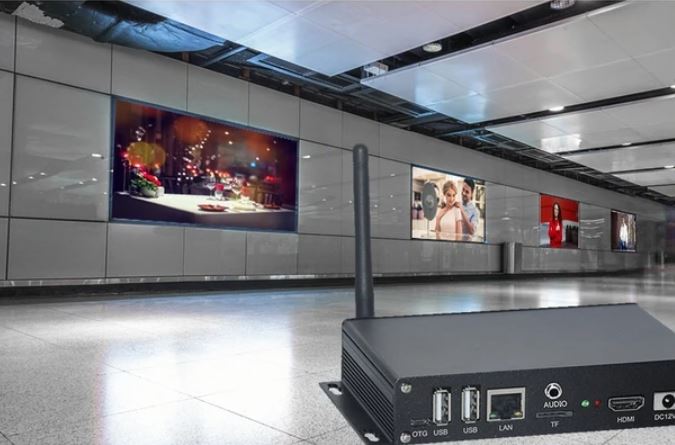In today’s digital marketplace, Point of Sale (POS) systems play an indispensable role in shaping the growth of e-commerce. As the landscape of retail evolves, businesses must find new ways to streamline operations, enhance the customer experience, and effectively manage both online and offline sales channels. Local e-commerce POS systems have become a crucial part of this transformation, providing the technological infrastructure that enables e-commerce platforms to flourish. This article delves into the many facets of how POS systems contribute to the expansion and efficiency of e-commerce.
What is a POS System?
A Point of Sale (POS) system is an integrated technology used to facilitate sales transactions between a business and its customers. It goes beyond just recording sales; modern POS systems combine software and hardware to support inventory management, customer relationship management (CRM), sales analysis, and even employee management. The versatility of POS systems has made them a key player in the e-commerce growth narrative.
The Evolution of POS Systems in the E-commerce Era
Initially, POS systems were primarily used by brick-and-mortar businesses for handling payments and inventory. However, with the rise of e-commerce, the functionality of POS systems has evolved significantly. Today’s systems are sophisticated enough to integrate both in-store and online transactions, providing a seamless experience for both customers and business owners. This evolution has led to the birth of omnichannel retail, where POS systems serve as the backbone for connecting diverse sales channels.
Key Roles of POS Systems in E-commerce Growth
1. Seamless Integration of Online and Offline Sales Channels
The modern e-commerce environment is characterized by multiple sales channels that need to work together smoothly. A POS system bridges the gap between physical stores and online platforms, providing a centralized system for all transactions. By integrating both sales environments, businesses can gain a holistic view of their performance, manage inventories efficiently, and prevent double bookings or stock-outs.
POS systems that integrate with e-commerce platforms allow merchants to synchronize products, customer data, and transactions, which simplifies the sales process. This integrated approach also enables businesses to track consumer behavior across different channels, giving them invaluable insights into customer preferences and buying habits.
2. Enhanced Inventory Management
Inventory management is one of the biggest challenges in e-commerce, especially for businesses operating both physical and online stores. A POS system provides real-time inventory tracking, allowing businesses to manage stock levels more effectively. By having an accurate overview of inventory, companies can avoid overselling and stockouts, which ultimately leads to improved customer satisfaction.
With integrated POS systems, businesses can set automated stock alerts, easily transfer products between warehouses or stores, and analyze sales patterns to make informed decisions about reordering stock. This streamlined approach not only saves time but also reduces costs and ensures products are always available for customers.
3. Improved Customer Experience
POS systems significantly contribute to creating a personalized and efficient customer experience. They facilitate seamless checkout processes, whether customers are shopping online or in-store. Integrated POS systems allow for the collection of detailed customer information, which can be used to create targeted marketing campaigns, personalized promotions, and loyalty programs.
For instance, if a customer frequently buys a certain product category, the POS system can provide tailored recommendations or promotional offers related to that category. The ability to offer personalized services helps to improve customer satisfaction and fosters loyalty, which is critical for the growth of e-commerce businesses.
4. Better Data Analysis and Reporting
One of the key strengths of modern POS systems is their capability for data analysis. Businesses can use POS systems to gather and analyze data on sales trends, customer preferences, inventory movement, and employee performance. Such insights are crucial for making informed decisions about marketing strategies, inventory purchasing, and overall business operations.
In the context of e-commerce, having access to detailed and real-time data is essential for adapting to changing customer demands. POS systems generate reports that help businesses understand which products are most popular, which sales channels are performing best, and how promotional campaigns are influencing sales. This level of insight is critical for driving growth and improving the efficiency of e-commerce operations.
5. Simplified Payment Processing
In the e-commerce industry, payment processing plays a critical role in determining whether a business succeeds or fails. POS systems simplify payment processing by supporting multiple payment options, including credit cards, mobile payments, and digital wallets. This flexibility is crucial for e-commerce businesses that need to cater to diverse customer preferences.
POS systems also ensure that payment data is processed securely, protecting both the business and its customers from fraudulent activities. By offering secure, flexible, and convenient payment options, POS systems enhance the customer experience, reduce cart abandonment rates, and foster trust between the business and its customers.
6. Streamlined Order Fulfillment
In the competitive world of e-commerce, order fulfillment can make or break a business. A well-integrated POS system can facilitate efficient order management by centralizing the entire order process. This includes everything from receiving online orders to updating inventory levels and coordinating shipping and delivery. With the right POS system in place, businesses can streamline the fulfillment process and reduce errors, ensuring that customers receive their orders promptly and accurately.
By improving order fulfillment processes, POS systems help e-commerce businesses meet customer expectations for fast and reliable delivery, which is a significant factor in achieving customer loyalty and positive reviews.
7. Supporting Omnichannel Strategies
The growth of e-commerce has given rise to omnichannel retail, where customers expect a seamless experience across all touchpoints. POS systems are fundamental to supporting an effective omnichannel strategy by linking online and offline operations. They allow customers to order products online and pick them up in-store, return online purchases to a physical location, or check inventory availability at different stores.
By supporting omnichannel experiences, POS systems not only enhance customer convenience but also help businesses maximize sales opportunities. The ability to provide customers with various shopping options increases engagement, drives more conversions, and ultimately contributes to the overall growth of e-commerce.
How to Choose the Right POS System for E-commerce
When selecting a POS system to support e-commerce growth, businesses should consider several factors:
- Integration Capabilities: The POS system should be capable of seamless integration with existing e-commerce platforms, CRM systems, and payment gateways.
- Scalability: The chosen POS system should be scalable to meet the growing needs of the business, especially during peak seasons.
- User-Friendly Interface: A straightforward interface ensures that employees can quickly learn to use the system, minimizing downtime.
- Real-time Data Access: The ability to access data in real-time is crucial for making informed decisions, managing inventory, and providing up-to-date information to customers.
- Security Features: Since e-commerce involves handling sensitive customer data, robust security features are essential to ensure data protection and compliance with relevant regulations.
Conclusion
The role of POS systems in e-commerce growth is undeniably significant. By providing seamless integration of online and offline sales channels, improving inventory management, enhancing customer experiences, and supporting data-driven decision-making, POS systems serve as a critical backbone for modern e-commerce businesses. In an environment where customer expectations are constantly evolving, investing in an advanced POS system can help businesses stay competitive and drive growth.
As the future of retail continues to lean towards digital transformation, POS systems will only grow in importance. Businesses that embrace the power of POS technology will be well-positioned to navigate the complexities of the e-commerce landscape, meet customer expectations, and capitalize on new growth opportunities.



